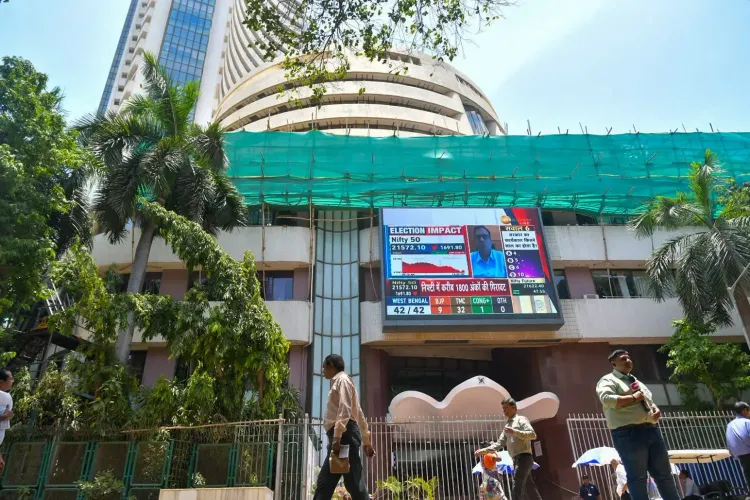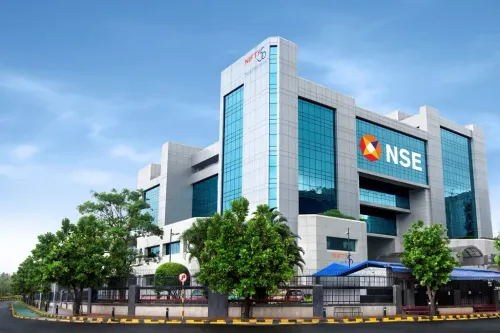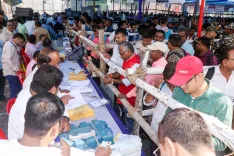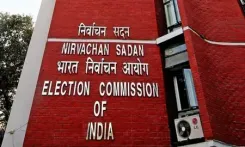Why Did the Stock Market End Lower After a Volatile Session?

Synopsis
Key Takeaways
- IT stocks faced significant selling pressure due to H-1B visa fee concerns.
- GST reforms provided a temporary lift to the market.
- Sensex and Nifty ended lower, reflecting broader market volatility.
- Profit-booking led to declines in major indices.
- Investors should stay informed about sectoral impacts moving forward.
Mumbai, Sep 22 (NationPress) The Indian benchmark indices concluded the day in the negative zone following a turbulent session.
The market was weighed down by IT stocks early on, triggered by the US administration's announcement of a $100,000 fee for new H-1B visas. Nevertheless, the market made a swift recovery, supported by the implementation of GST reforms that began on Monday.
The Sensex closed at 82,159.97, down 466.26 points or 0.56 per cent. The 30-share index opened lower at 82,151.07, compared to the previous session's close of 82,626.23, primarily due to significant declines in IT stocks. However, the new GST reforms helped prevent the index from dropping further.
The Nifty finished at 25,202.35, down 124.70 points or 0.49 per cent.
According to Ashika Institutional Equities, "The day commenced on a weak note, with negative global cues and fears over the $100,000 H-1B visa fee for new applicants affecting market sentiment. Benchmark indices opened lower, reflecting the cautious global mood. Despite this, the market quickly attempted a recovery and filled the gap created by the initial decline."
However, selling pressure returned, leading the Nifty to its intraday low as profit-taking dominated the latter part of the session, the report indicated.
Among the top losers in the Sensex basket were Tech Mahindra, TCS, Tata Motors, Trent, HCL Tech, Sun Pharma, SBI, L&T, ITC, BEL, Maruti Suzuki, and Kotak Bank. In contrast, stocks such as Eternal, Bajaj Finance, Adani Ports, Ultratech Cement, Hindustan Unilever, and Axis Bank showed gains.
The majority of sectoral indices also closed in the red due to the selling pressure. Nifty Bank fell 174.10 points, Nifty Auto dropped 65 points or 0.24 per cent, Nifty FMCG declined 266 points or 0.47 per cent, and Nifty IT closed 1078 points or 2.95 per cent lower.
The broader market mirrored this trend as well. Nifty Small Cap 100 decreased by 215 points or 1.17 per cent, Nifty Midcap 100 fell by 394 points or 0.67 per cent, and Nifty 100 ended the session 91 points or 0.35 per cent lower.









